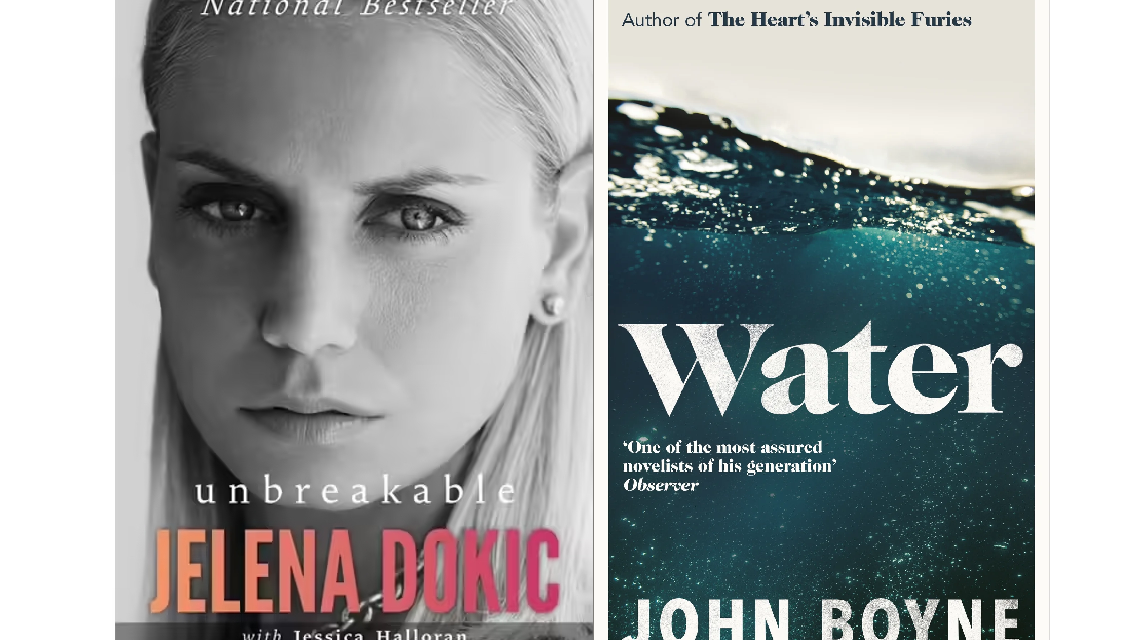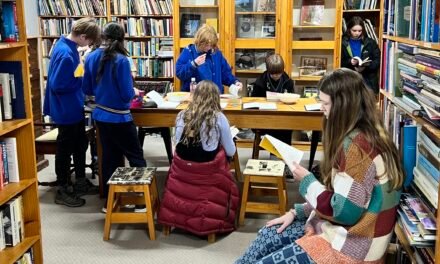Lesley Hewitt
Just before Hepburn Radio’s 2nd Thursday Book review this month the Archbishop of Canterbury, Justin Welby resigned following criticism of his handling of allegations surrounding a child abuser associated with the Church of England (https://www.abc.net.au/news/2024-11-13/archbishop-of-canterbury-justin-welby-resigns/104593154) . In the same week I listened to an ABC podcast with Jelena Dokic who was talking about the abuse she experienced as a child at the hands of her father Damir Dokic (https://www.abc.net.au/listen/programs/conversations/jelena-dokic-unbreakable-documentary-tennis-abuse-future-talent/104452774). Dokic was a talented Australian tennis player who reached a world ranking of number 4 in 1999. In her memoir, Unbreakable which I read when it was published in 2017 she describes her father’s violence. The book is now the subject of a documentary film showing in cinemas. In the same time, I read a fictional novella, Water, by Irish writer John Boyne, which explores the issue of complicity in child sexual abuse cases. Water and Unbreakable and their different approaches to complicit behaviour were the subject of November’s 2nd Thursday Book review.
John Boyne, 53 is an Irish novelist. He has written 16 novels for adults and 6 for younger readers. He is probably best known for his book The Boy in the Striped Pyjamas written for younger readers.
In Water, Vanessa Carvin arrives on a small island off the coast of Ireland, renting a cottage without Wi-Fi or TV, immediately changing her name to Willow Hall. Her husband, Brendan Carvin has been jailed for crimes against children. Is she also guilty? Is she complicit in her husband’s crimes? These issues are explored in a sensitive way through her interactions with the people in the island community and her younger daughter Rebecca. There’s Luke, the youngest son of a farming family whose family obligations mean he must stay to care for parents, Evan, a talented young footballer whose father wants him to pursue this against Evan’s own desires and the ‘new’ publican with secrets of his own. Vanessa/Willow’s story is expressed through her interactions with these people. It is a beautifully written book with a superb use of language, demonstrating a willingness to confront traumatic subjects in a sensitive manner. Can she or the reader ever know if she is complicit in her husband’s crimes? There were certainly indicators of child sexual abuse that she did not recognise – a child requesting a lock on the bedroom door, comments from a friend, work behaviours from a husband that don’t make sense. In the novella, Vanessa valued her affluent lifestyle and the experiences that she had because of her husband’s power. Indicators are often ignored for a range of reasons.
Unbreakable is not easy to read or to listen to. While we can ask who in tennis circles and the sports media may have been aware of what Jelena Dokic was experiencing, perhaps there is a sense that we are all complicit by lapping up the reports of Damir Dokic’s behaviours and focusing on the impact on his young daughter. .
Both books, one fictional, one factual give us some insight into how indicators of child abuse can be ignored. Reading them can help start conversations about how, why and what those of us who query if abuse is happening can do to respond.
Both books are available at the library and Paradise Books can order them in.
Lesley Hewitt is a Daylesford resident with extensive experience as a social worker in the area of family and domestic violence. She features in the Second Thursday Book review on Hepburn Radio.





